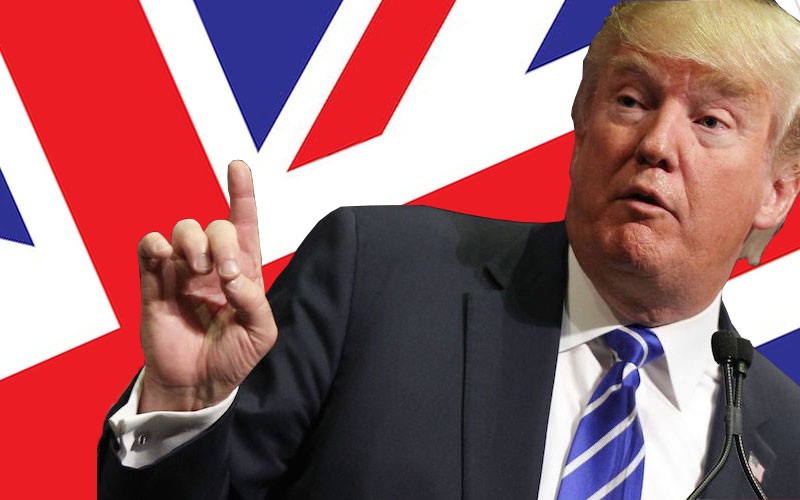
How a Trump Presidency Would Impact UK Defense Policy
The primary concern of a Trump presidency for the UK is his stance on NATO. Trump has repeatedly stated that he wants to see NATO members contribute more towards their national defense if they want to receive U.S. military support. Now, only a handful of NATO members are spending the minimum two percent of GDP on defense budgets as required by the Alliance treaty. United States officials have often not concealed their annoyance at that situation, but Donald Trump is the only one to suggest that America’s commitment to NATO should become contingent to spending levels.
In an interview for the New York Times, Trump said he would be absolutely prepared to tell the countries that do not meet the spending levels to defend themselves in the event of an attack. This would effectively defeat the fundamental principle of the military alliance: a credible commitment to collective self-defense.
Legally speaking, nothing is forcing the United States to defend a threatened ally, the Article 5 of the alliance treaty dealing with this isn’t binding. It works through the unequivocal commitment from the United States, regardless of who sits in the Oval office, to intervene in any conflict involving a NATO ally.
This forcefully deters any hostile powers and Russia from engaging in a conflict against any alliance members. Thus, Trump will be remembered as the first presidential candidate to break with decades of bipartisan commitment to NATO. Furthermore, Trump believes the alliance is obsolete, cannot effectively counter emerging threats to global security and unless it isn’t heavily restructured the U.S., under his administration, might simply be no longer a part of NATO.
On the other hand, NATO is the cornerstone of the United Kingdom defense. The country has the second largest budget in the alliance, and it always maintained its commitment to NATO’s target of spending 2 percent of GDP on the military. It seems evident the United Kingdom needs the alliance more than ever before now that the country has voted to withdraw from the EU. It also needs to reinforce its military partnership with the United States. In the meantime, France and Germany are pushing for the creation of a European Army, a concept the UK always vigorously rejected.
Liam Fox, the former UK defense secretary expressed the view that a European Army could potentially cut the UK off from the US, “our closest and most powerful ally.” Indeed, the EU countries would most likely redirect money and military resources into the newly created Euro Army further reducing NATO’s budget and capability. A Euro Army would also end the stationing of U.S. forces in Europe. All of this could persuade Donald Trump, who is clearly unfavorable to NATO, to bury the organization altogether, and, at the same time, weaken Britain’s security.
What a Trump presidency would mean for UK trade?
Trump does not seem to big fan of trade deals. The Republican nominee has been very critical of NAFTA, the North American Free Trade Agreement, which allows the free movements of goods between the US, Canada and Mexico. He repeatedly blamed NAFTA for destroying America’s manufacturing sector and pledged that if elected he will renegotiate the agreement to reinstate tariffs, notably on imports from Mexico. He also did not fail to criticize the proposed Trans-Pacific Partnership between the US and 11 Asian countries which he dubbed as too complex and potentially disastrous for the US economy.
However, the Republican candidate is not resolutely opposed to all forms of free trade. Tom Barrack, one of Trump’s key advisers, wrote in a column for the British edition of the Business Insider, ‘America’s interests get swamped in multilateral agreements,’ and suggested that a Trump administration would favor simpler one-on-one arrangements instead. This is where it gets interesting for the UK.
The economic ties between the United States and United Kingdom are very strong. The U.S. is Britain’s largest single export market with $51 billion dollars in 2014, and the third largest source of UK imports after Germany and China. The total exchange between the two countries amounted to $95 billion dollars that year. Furthermore, the UK is also the biggest foreign investor in the US at $449 billion dollars a year and supports over 1 million jobs in the country. The two countries also share a similar legal system and financial sector. Clearly a post-Brexit Britain would want to reduce tariffs and trade barriers with its biggest economic partner after the EU and it would seem a Trump administration wouldn’t make the task of designing a tailor-made deal between the two countries insurmountable.
Indeed, in the wake of Brexit, Donald Trump during a visit in the UK denounced Obama’s ‘back of the queue’ warning for a post-Brexit Britain when it would be time to negotiate trade deals with Europe. He stated the UK will “always be at the front of the line” and while at the time, it seemed to be no more than just political rhetoric to cheer up the British audience, it could be a real indicator of Trump’s future trade policies.

